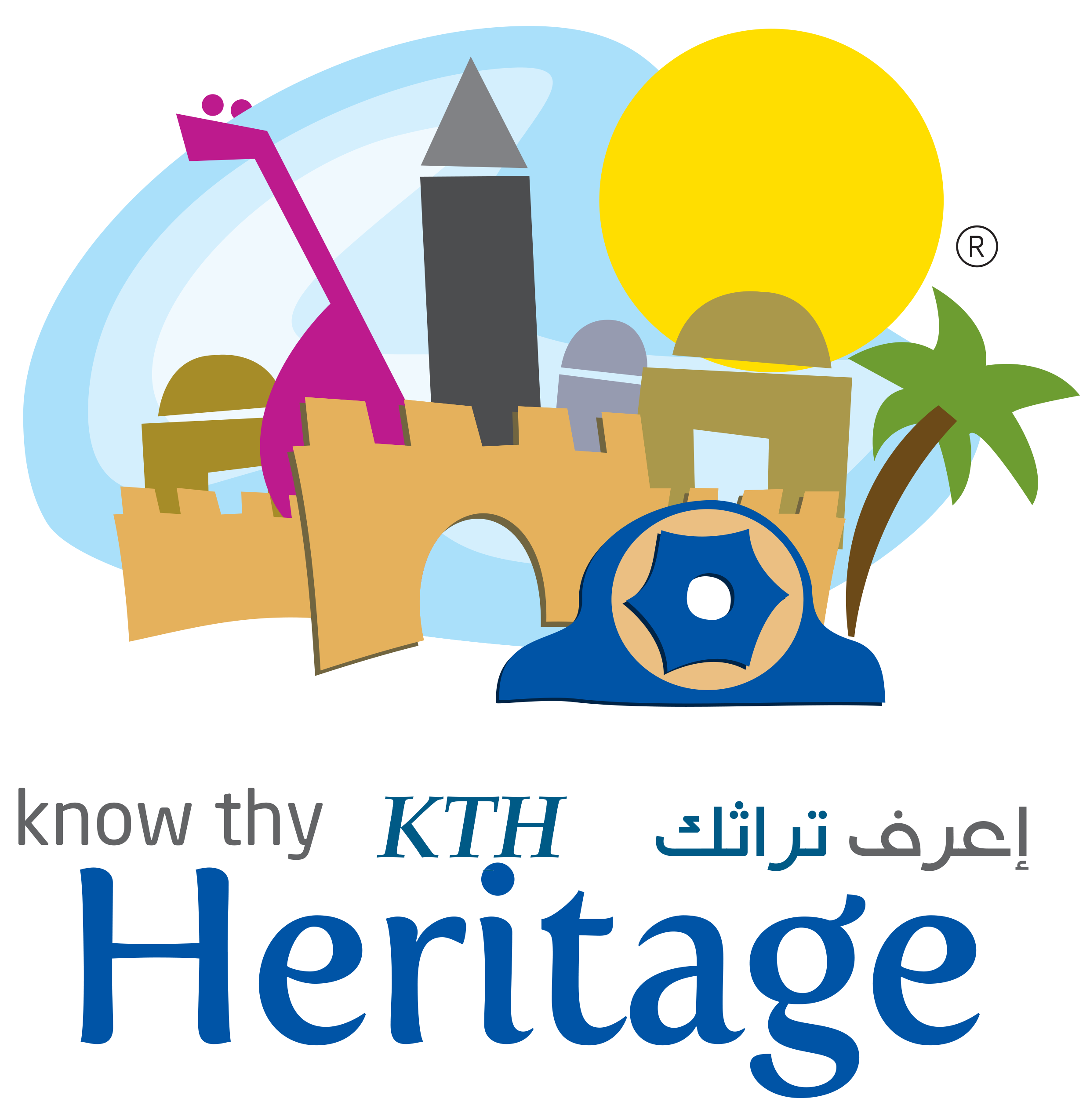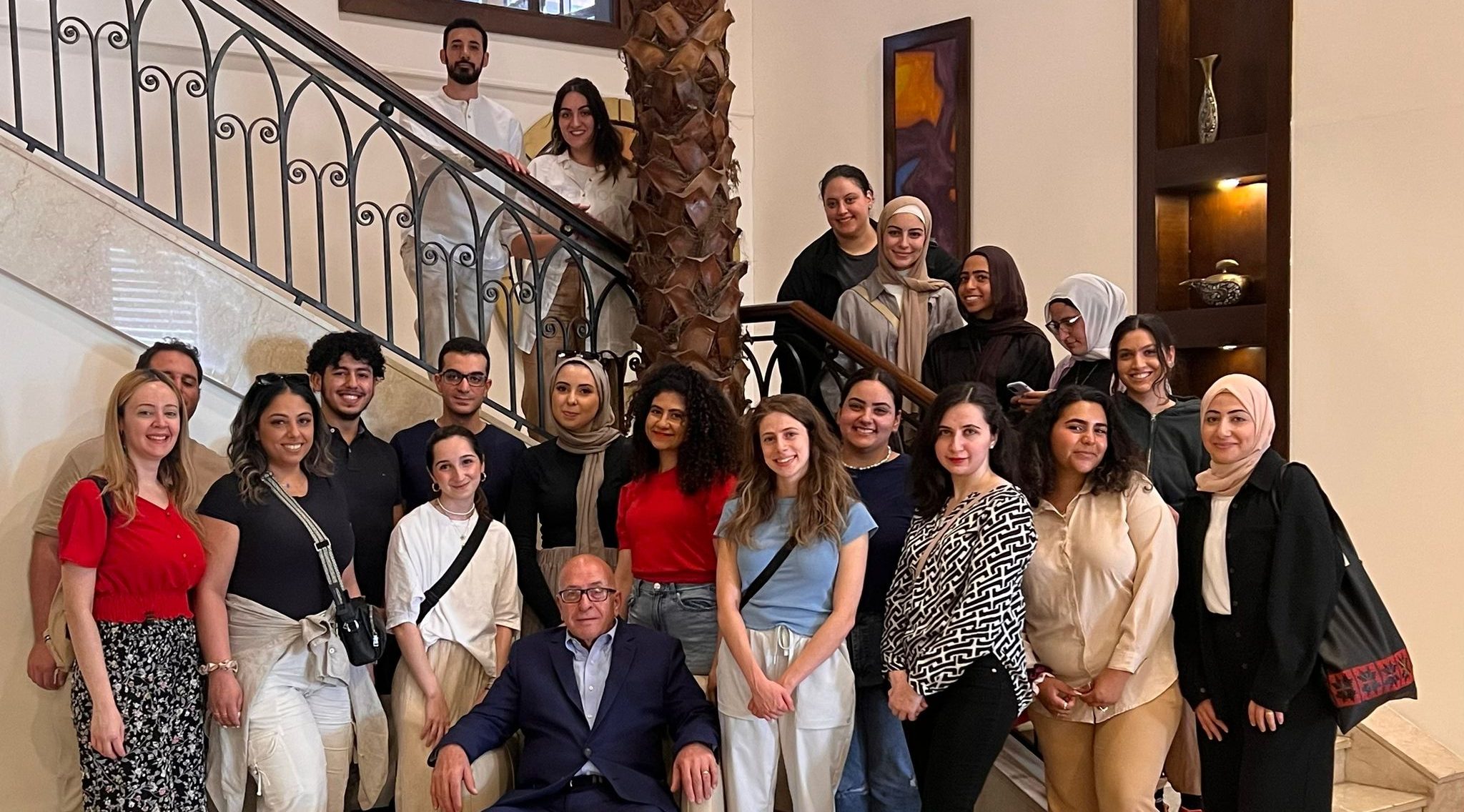Know Thy Heritage Leadership Initiative Day 13: Saying Goodbye To Ramallah

Know Thy Heritage Leadership Initiative Day 13: Saying Goodbye To Ramallah
By Sophia K.

The last full day of our journey came with yet another wide range of conversations. Through our stops, we learned about the work being done at the Ministry of Health and what business leaders are doing to push economics forward and set the next generation up for success.
Our first stop on our farewell tour of Ramallah was back at the Arab American University to chat about identity with a professor there named Dr. Nahed Habiballah. She talked about how both people in Palestine and within the Palestinian diaspora struggle to find where they fit in. Palestinians in Palestine specifically face daily battles under active occupation ranging from tedious checkpoints to staring death in the face—all in a place where they were born and call home. Dr. Habiballah invited our group to share personal experiences about our identity and our challenges. While we didn’t have much time to get in-depth, I was shocked to hear several people chime in and say they have felt the need to conceal their Palestinian heritage to fit in or attempt to stop discrimination in its tracks. One delegate explained how she speaks about her heritage proudly whenever it comes up in conversation, and I wholeheartedly agree with this sentiment. While I do understand that people can be awful and judge you based on your race, I think those hiding from it are missing opportunities to use their ethnicity as a starting point to advocate and speak about the Palestinian struggle.

Next on the agenda was a visit to the Palestinian Ministry of Health to hear from the first woman Health Minister, H.E. Dr. Mai Al-Kaila. We learned that despite solid efforts, there is a multitude of healthcare issues that are occupation-fueled.  One example that let us painfully know that Israel doesn’t care about the well-being of the Palestinian people was when Dr. Al-Kaila explained how the apartheid makes access to medical care, supplies and medications difficult. Mobile clinics are set up to combat having to travel far for care, but there are times when vaccines have been in transit too long and have to be thrown out. Frequently, medications are held up in transit for years at a time, making them unusable as well. And overall, Palestine only has hospital beds to support 60% of the population. On the positive end of the spectrum, Dr. Al-Kaila said that many young people are continuing to pursue medicine within the five medical schools in Palestine.
One example that let us painfully know that Israel doesn’t care about the well-being of the Palestinian people was when Dr. Al-Kaila explained how the apartheid makes access to medical care, supplies and medications difficult. Mobile clinics are set up to combat having to travel far for care, but there are times when vaccines have been in transit too long and have to be thrown out. Frequently, medications are held up in transit for years at a time, making them unusable as well. And overall, Palestine only has hospital beds to support 60% of the population. On the positive end of the spectrum, Dr. Al-Kaila said that many young people are continuing to pursue medicine within the five medical schools in Palestine.
Our last stop of the day was at Palestine Techno Park—a nonprofit startup hub funded by India on land donated by Birzeit University. We took a tour and learned how the park is set up to create a supportive community and working environment and accelerate startup funding by linking entrepreneurs with international investors. Right now, some businesses working out of the offices include a modest fashion brand, a delivery service and a mobile app to help solve urban street parking issues. There are also labs and learning events for youth hosted at the park, including boot camps on research skills, coding and artificial intelligence.

Before leaving, we met up with some old friends or business leaders in Palestine that we were first introduced to at our diaspora conference a few days prior. Samir Hulileh, Chairman of the Board at Palestine Exchange and Sam Bahour, Managing Partner at Applied Information Management, stopped by to talk about the economic challenges in Palestine and the strides being taken. Hulileh shared his belief that more investment education needs to happen to increase the number of women and young people involved in the stock market. He highlighted that the stock exchange allows investors to push the Palestinian market forward, no matter where they are in the world. Currently, many market investors come from the diaspora, and Hulileh encouraged us to consider doing the same to do our own part to contribute. Bahour shared information about some of the largest economic sectors, including tourism, agriculture, financial services, construction and building materials and information and communications technology. He added that despite the thriving industries, there are countless barriers. Two realities Bahour covered and stood out were that Gaza should be a major destination given its coastal location and that exporting is tricky under occupation constraints. A broader statistic that also stuck with me was that the per capita income in Israel is $55,000, while in Palestine it is $3,000, although the cost of living is the same.
 Our last full day of activities drove home the true resiliency of Palestinians that we have been hearing about and seeing firsthand for the past two weeks. Despite living in an occupation that makes daily life, let alone pursuing meaningful careers, tough, they persevere. Palestinians continue to seek education in healthcare, business, engineering and beyond to help care for one another. This day was also a reminder of the work we must continue to do back home because if our brothers and sisters in the homeland can be productive amidst their conditions, the least we can do is spread the word.
Our last full day of activities drove home the true resiliency of Palestinians that we have been hearing about and seeing firsthand for the past two weeks. Despite living in an occupation that makes daily life, let alone pursuing meaningful careers, tough, they persevere. Palestinians continue to seek education in healthcare, business, engineering and beyond to help care for one another. This day was also a reminder of the work we must continue to do back home because if our brothers and sisters in the homeland can be productive amidst their conditions, the least we can do is spread the word.




